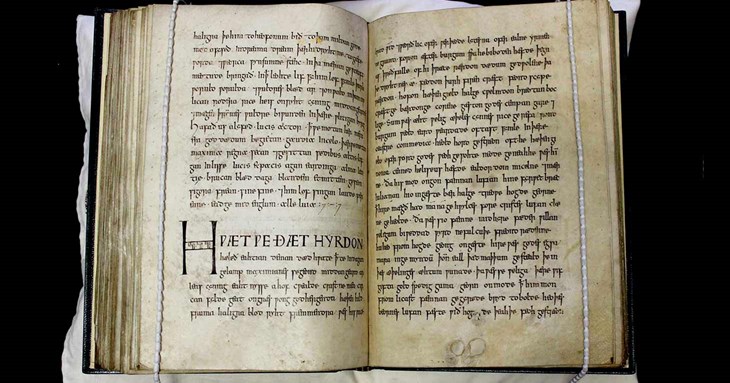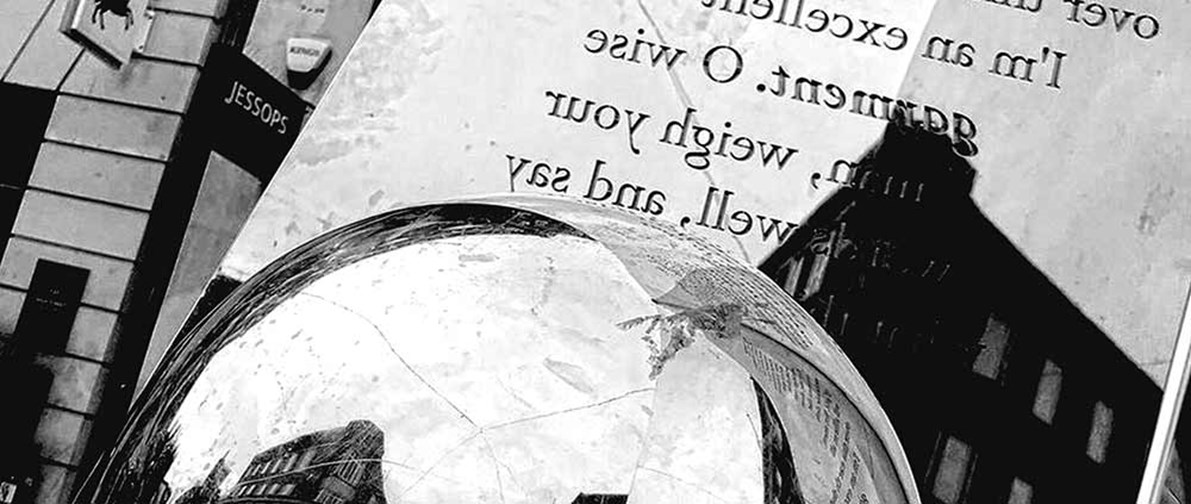World Book Day 2020
Published: 5 March 2020

The Exeter Book is a 10th-century anthology of poetry in Old English and is of major importance to the city and English literature itself.
In 2016, UNESCO added the Exeter Book to its Memory of the World Register of artefacts of global cultural significance and awarded Exeter the prestigious UNESCO City of Literature status in 2019.
The Exeter Book is a literary manuscript, specifically a collection of poems, a verse anthology. Most surviving Old English texts are in prose, which is a form or technique of language that exhibits a natural flow of speech and grammatical structure – the Anglo-Saxon Chronicle, for example – and there are only four known poetic manuscripts: the Beowulf manuscript in the British Library, the Junius manuscript in Oxford, the Vercelli Book in Italy, and the Exeter Book.
Though incomplete and damaged in a few places, the Exeter Book is the largest, the best preserved and probably the oldest of these manuscripts. This means that what we have, here in Exeter, is nothing less than the oldest book of English literature in the world – a book of national, indeed international, importance and incalculable value.
The Book has been in Exeter since at least the 11th century, being donated to the Cathedral by Bishop Leofric on his death in 1072, where it has been kept and cared for continuously ever since. Its riddles are virtually all those which survive in Old English. Many of them have bawdy double meanings and some still remain unsolved to this day.
The Riddle Sculpture by Michael Fairfax, which stands in Exeter’s High Street, incorporates some of the Book’s riddles. Its poems and elegies such as the Wanderer and the Seafarer are among its best known compositions, and have inspired writers from Ezra Pound to J. R. R. Tolkien.

The Book bears the marks of its past and appears to have had many varied uses over the years, including being used to press gold and silver leaf, used as a chopping board, and suffering a spill from a glue pot.
In 2019, Exeter was awarded the prestigious status of UNESCO City of Literature, becoming part of the UNESCO Creative Cities Network.
Cllr Rachel Sutton, Lead Councillor for Climate and Culture, said at the time: “I am absolutely thrilled with the news - it is a huge honour for Exeter that will unlock exciting new opportunities for everyone in the city to engage in culture.”
